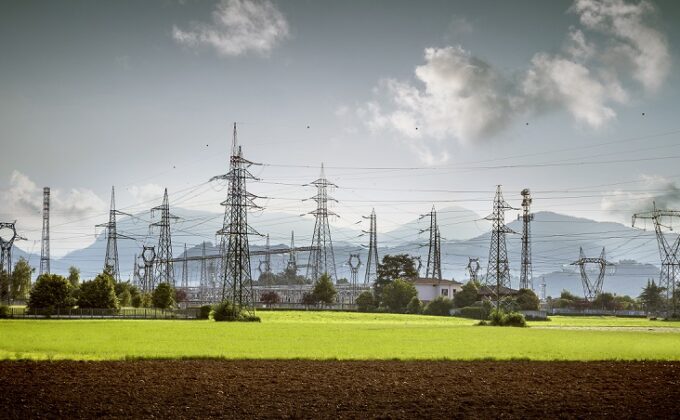Content Filter:
July 6, 2020
低碳电力体系下配电系统运营商面临的挑战
- Philip Baker
向清洁能源的转变正在改变电力系统的性质。电气化程度不断提高,更积极的消费者以及消纳更多风能和太阳能的需求。传统消费者只能被动的消费电,而现代消费者越来越积极,能买卖能源服务、发电、而且调整行为为了支持电网的可靠性、低碳性和经济性。这些趋势正在影响配电网络的根本设计和运行。在许多国家随着电力部门的改革和市场化,分布式发电和其他能源资源,包括需求侧管理和分布式储能越来越重要。这些变化给配电系统运营商带来了广泛的挑战和机遇。 要成功驾驭这一转变,配电系统运营商将需要接受其角色和结构的变化,同时探索数字化和创新的世界,以管理配电网络。配电系统运营商在未来需要适应改变的领域,以确保成功实现能源转型。 睿博能源智库最近分析了这一主题在欧洲的情况和发展趋势,或许对中国和其他国家也有借鉴作用。 按照睿博能源智库的结论,随着分布式发电容量的增加,配电系统运营商将需要通过利用这些资源所提供的内在灵活性在管理配电网络方面发挥更积极的作用。为了实现这一目标,他们在采购和管理成千上万积极消费者的贡献时,需要发展维持供电安全和供电质量所需的技能和设施。这些发展也将改变他们与输电系统运营商的互动,因为两者的责任有时可能会重叠。决策者可以通过调查输电和配电系统运营商角色的潜在变化来缓解这种紧张,以确保有效的系统安全和管理。 政府部门最好可以激励配电系统运营商专注于反映消费者需求和能源政策重点的结果,奖励他们以最具成本效益的方式实现这些结果。这些政策还将解决运营商如何收回电网成本的问题。一个重要方面是重新考虑输配电价设计,以确保我们鼓励消费者的行为符合能源转型。 本文仅为简介,欲了解更多,可阅读… View Summary +

October 23, 2019
UK capacity market déjà vu: A solution that’s still in search of a problem
- Philip Baker ,
- Michael Hogan
In November 2018, the EU General Court ruled in favour of a legal challenge mounted by Tempus Energy to the Directorate General for Competition’s (DG COMP) approval of the capacity market in Great Britain. In its challenge, Tempus successfully argued… View Summary +

September 22, 2019
The UK’s August 9 blackout: Why did it happen and what can we learn?
- Philip Baker
The power outages that occurred in the United Kingdom on August 9 demonstrated our increasing dependence on secure electricity supplies and the extremely disruptive consequences when those supplies fail. The reasons for the extent of the disruption to transport… View Summary +

April 17, 2019
Walking the walk on capacity mechanisms
- Philip Baker ,
- Michael Hogan
Following the decision of the General Court of the European Union in November last year to annul the capacity market in Great Britain, the European Commission has now embarked on a detailed formal investigation of the market’s design. The Court’s… View Summary +

December 26, 2018
Energy markets will deliver the flexible, decarbonised power system that we need, not capacity markets
- Michael Hogan ,
- Philip Baker
Energy-only markets will enable the integration of the European electricity market and development of the flexible resources needed to support a decarbonised future. Philip Baker and Michael Hogan offer a critique to RTE’s impact assessment of the French capacity market. View Summary +

November 1, 2018
Britain’s capacity market: What Europe can learn
- Philip Baker
The U.K.’s marketwide capacity mechanism for electricity provides a solution to a supply problem that has yet to emerge, writes Phil Baker. A targeted strategic reserve is likely to be a more cost-reflective alternative, he argues. In 2014 Great… View Summary +

March 7, 2018
Deutschland muss endlich den europäischen Strommarkt unterstützen
- Philip Baker ,
- Andreas Jahn
Der EU-Energiebinnenmarkt würde enorme Werte schaffen. Verbraucher könnten von Milliardeneinsparungen profitieren, Jahr für Jahr. Doch die Nationalstaaten blockieren. Insbesondere Deutschland muss endlich seiner Verantwortung als zentrales Bindeglied im europäischen Stromnetz nachkommen, fordern Philip Baker und Andreas Jahn vom Regulatory Assistance… View Summary +

February 20, 2018
Regional cooperation and integrated energy markets at risk
- Christos Kolokathis ,
- Philip Baker
A much more interconnected European energy market, ensuring regional cooperation and cutting out waste, makes so much sense for consumers, for security of supply, and for decarbonisation. When the European Commission first outlined its vision for a genuine Energy Union… View Summary +

February 14, 2018
A step backward – European Member States threaten to reverse progress on Single Electricity Market
- Philip Baker ,
- Christos Kolokathis
The European Council’s proposals on the internal energy market fundamentally weaken the framework that is needed to deliver an integrated market that will benefit European energy consumers, write Philip Baker and Christos Kolokathis from the global energy policy advisors Regulatory… View Summary +

October 6, 2017
EU must take regionalisation of electricity markets a step further
- Philip Baker
The European Commission has proposed to set up Regional Operational Centers (ROCs), which is a welcome step in the further integration of the EU internal electricity market, writes Philip Baker of the Regulatory Assistance Project (RAP). However, according to Baker,… View Summary +

